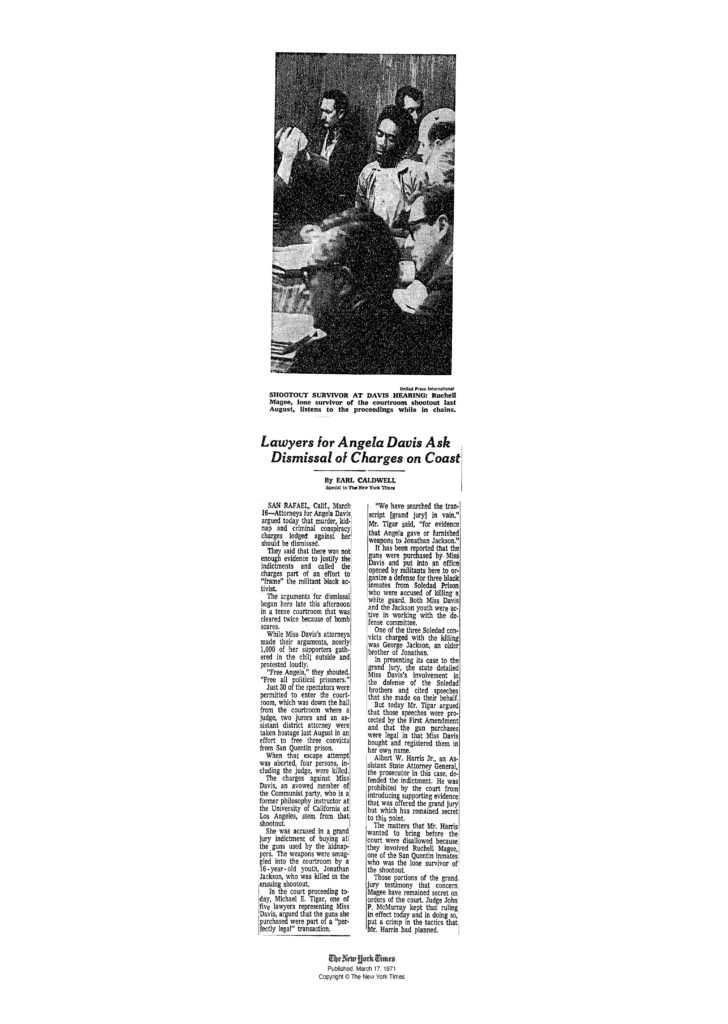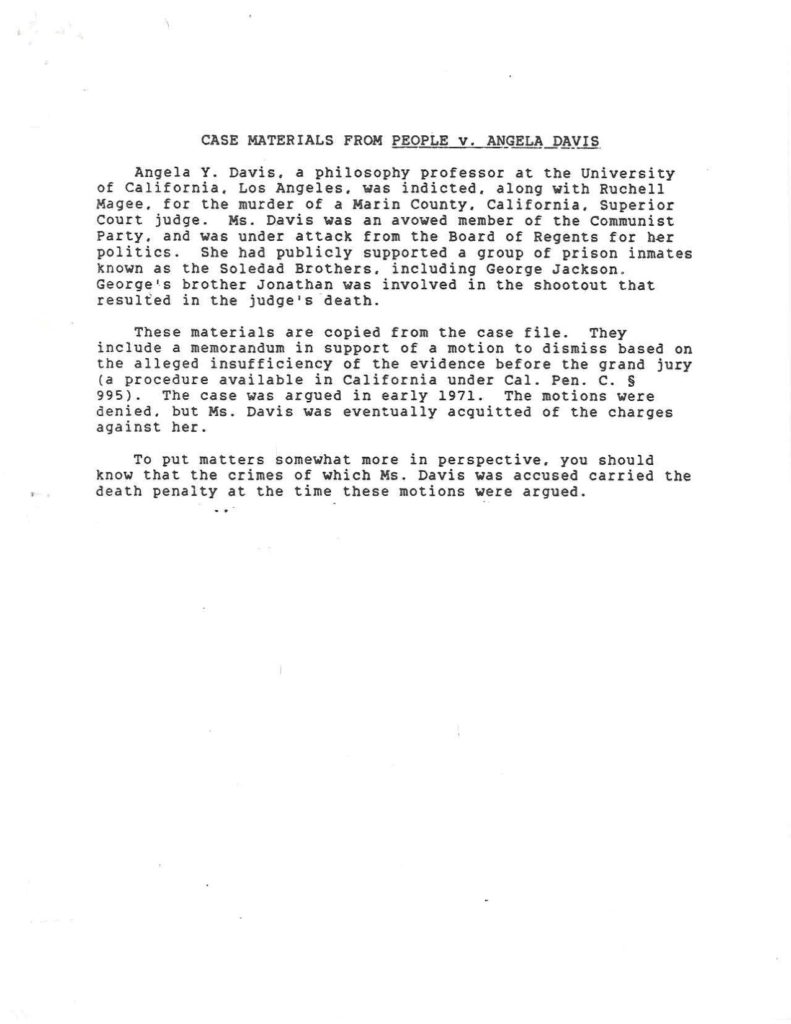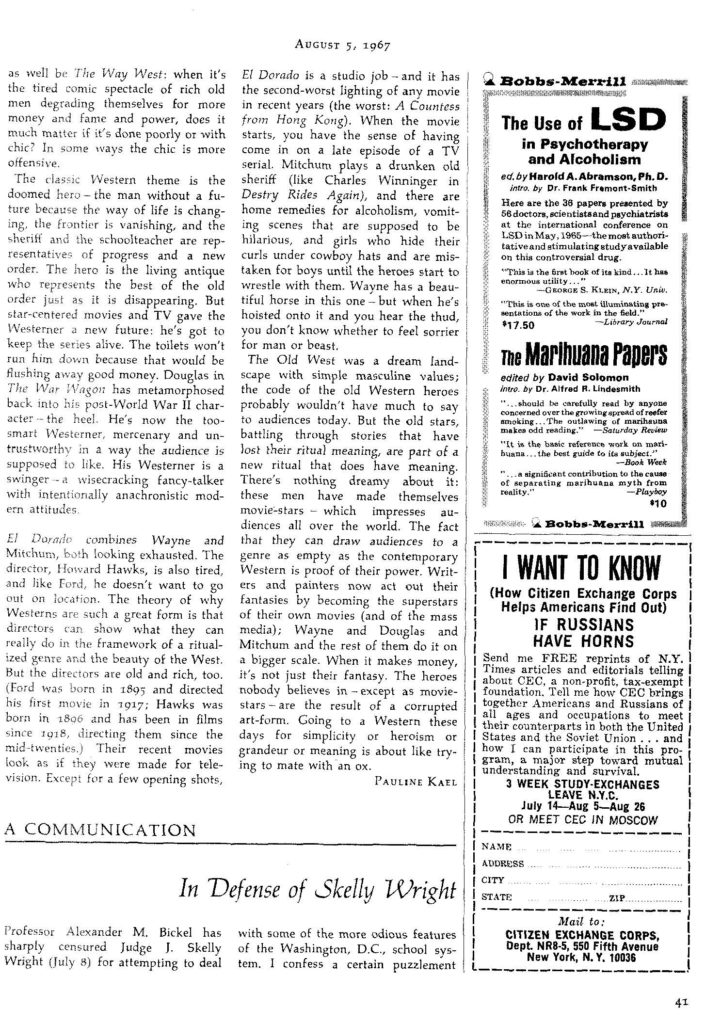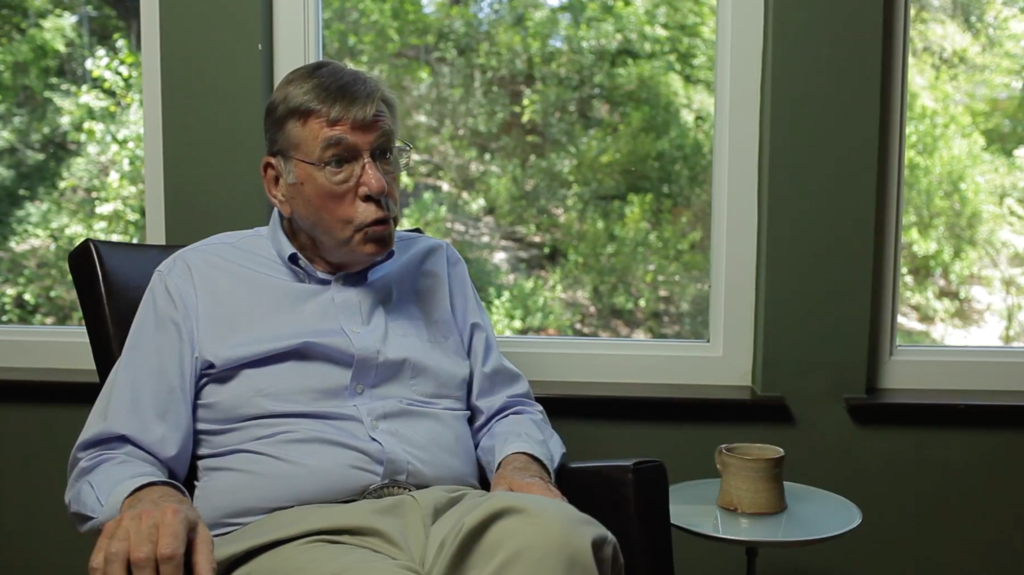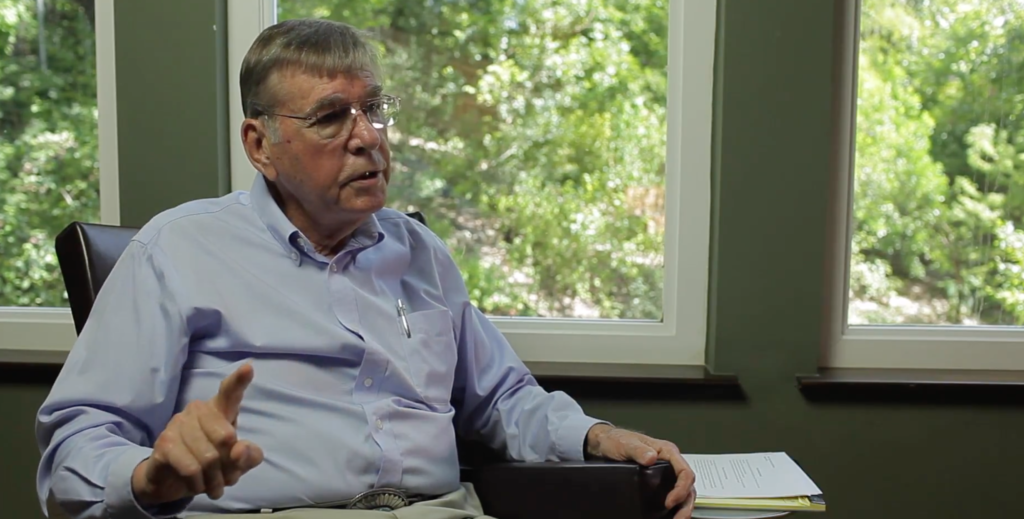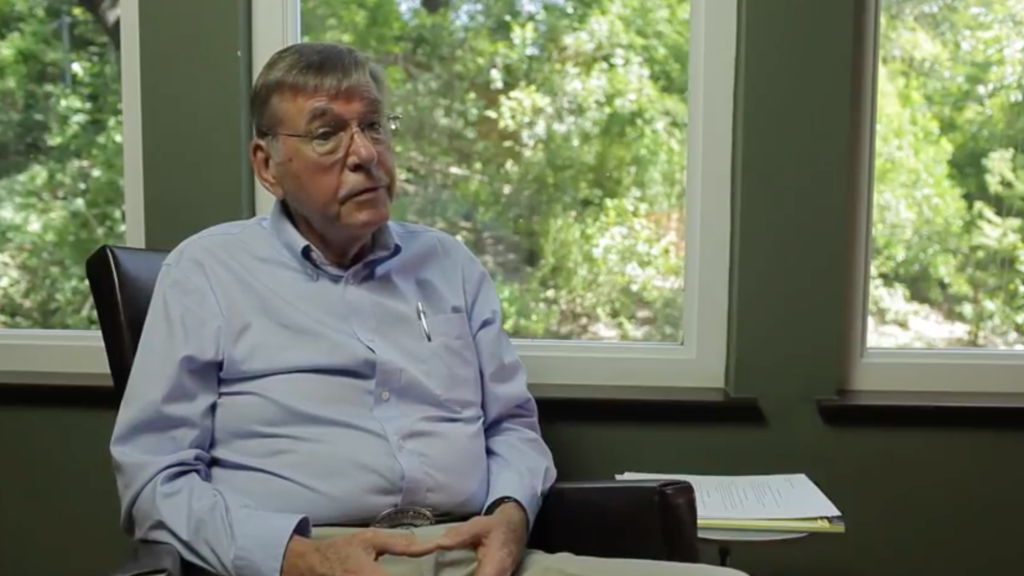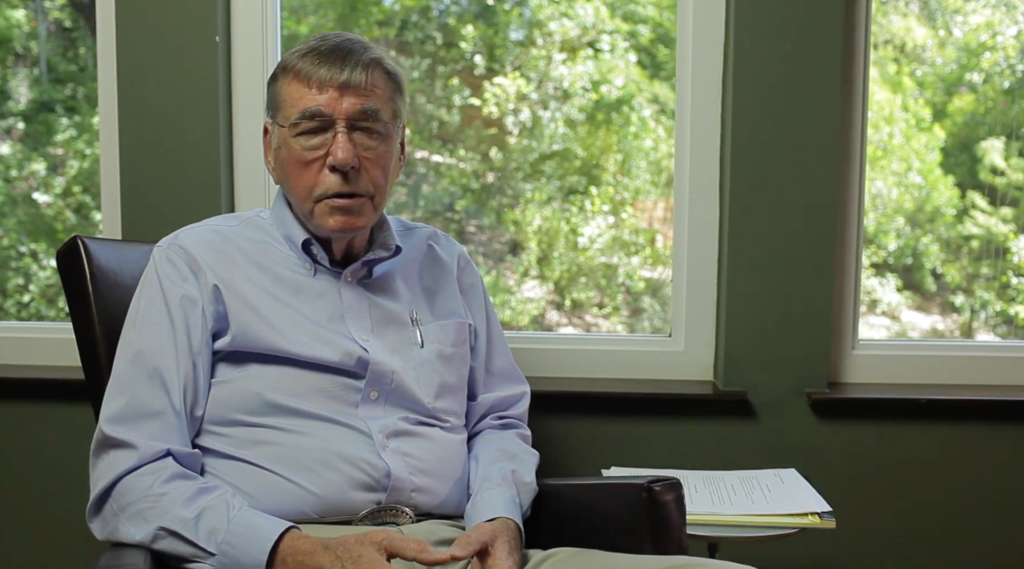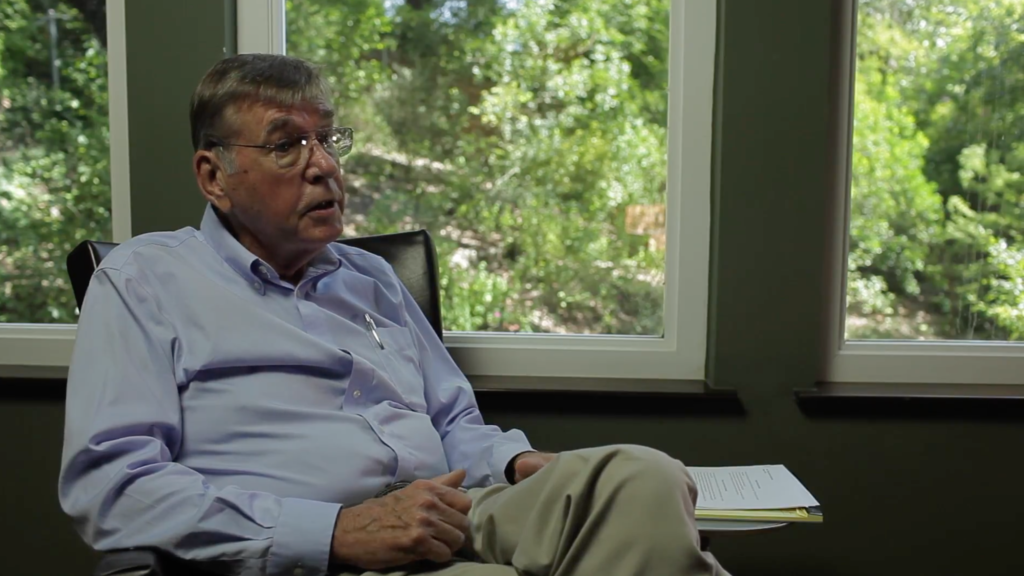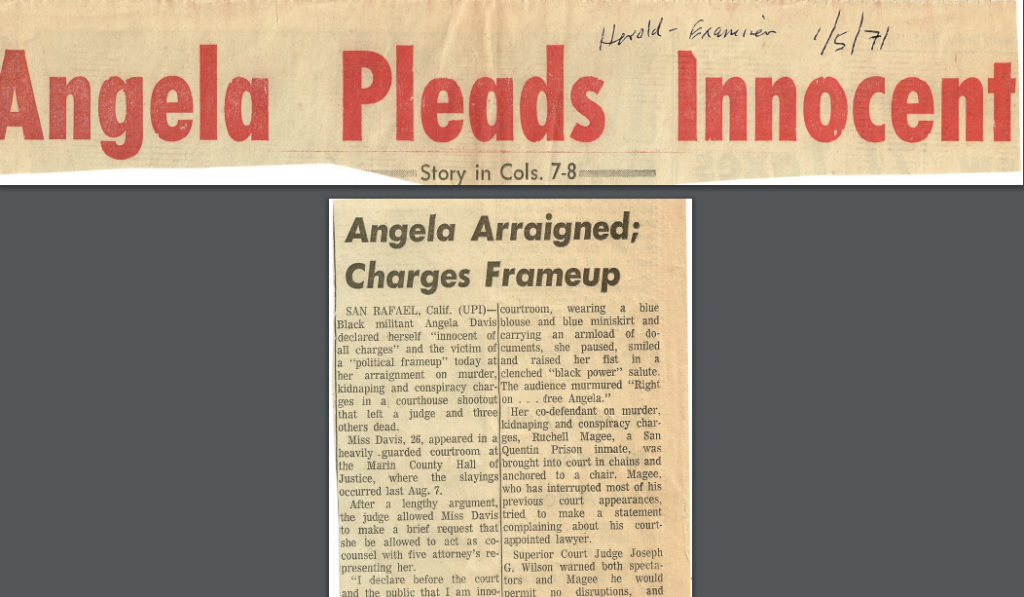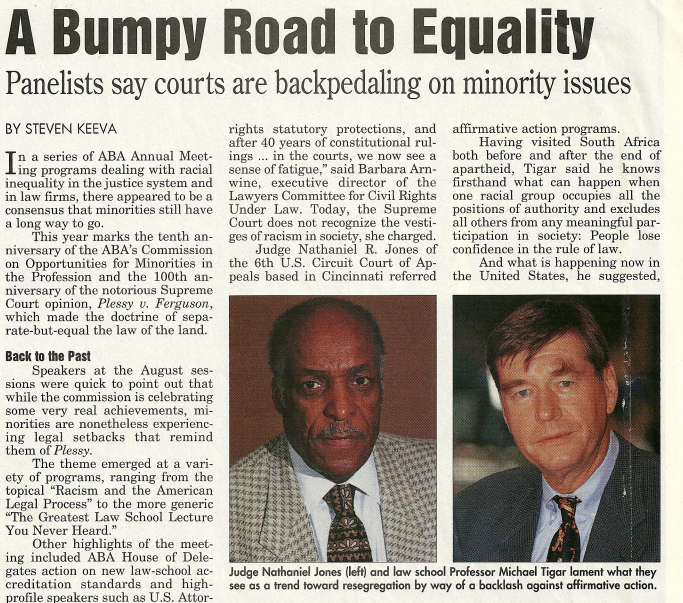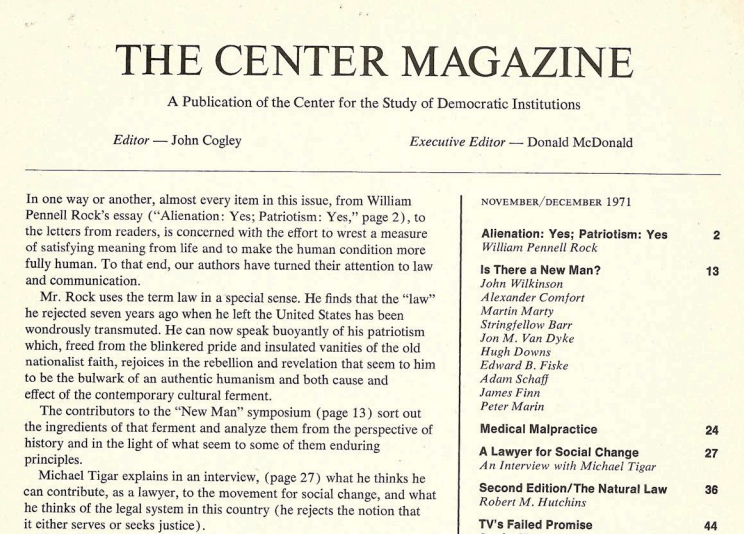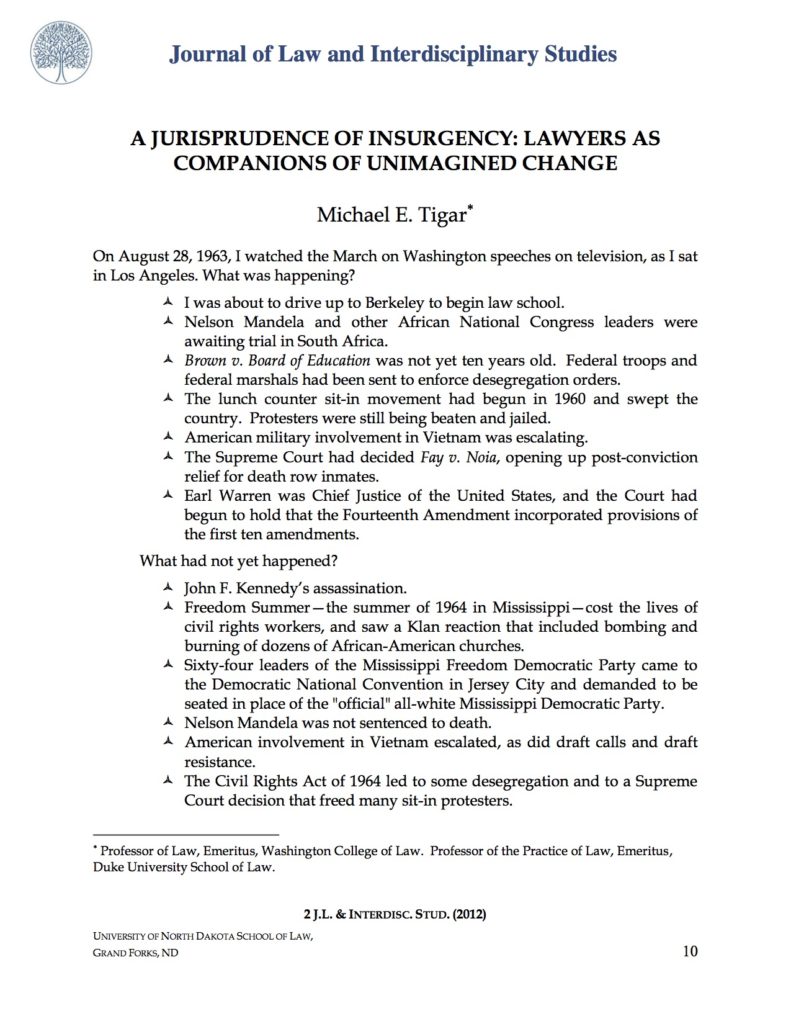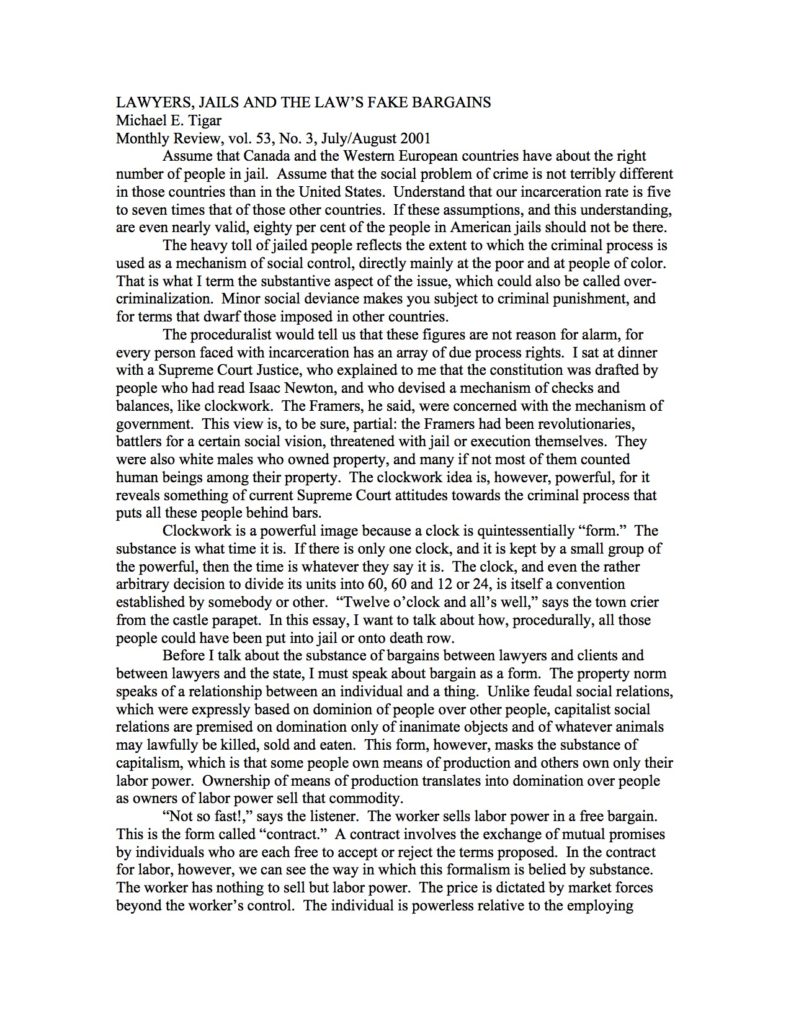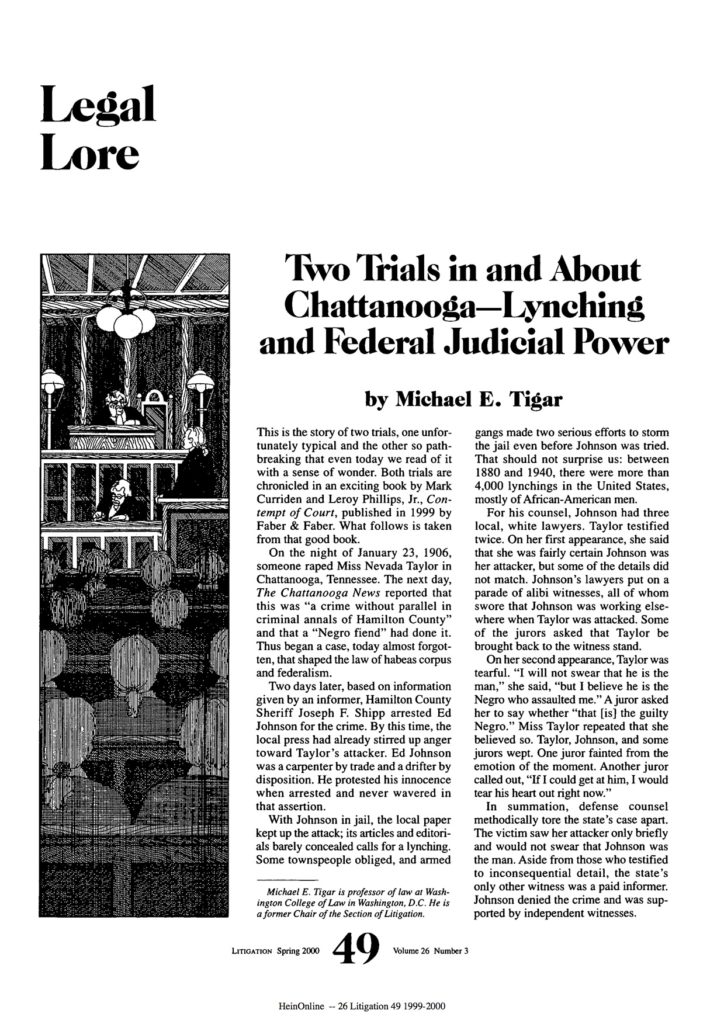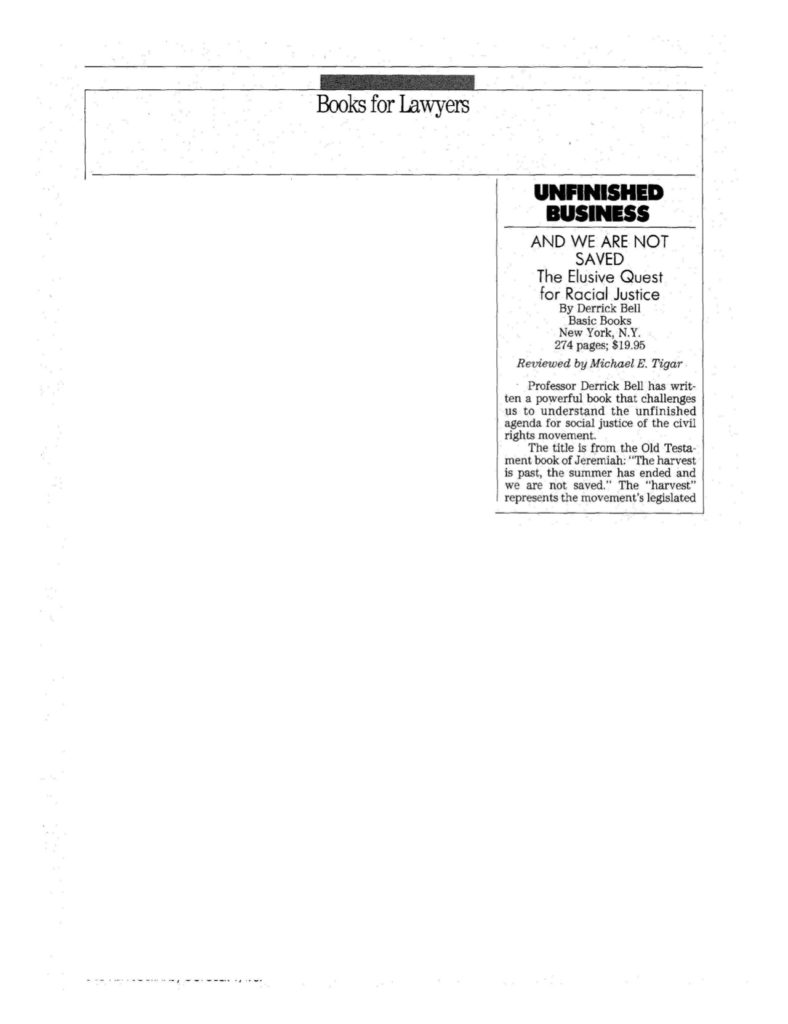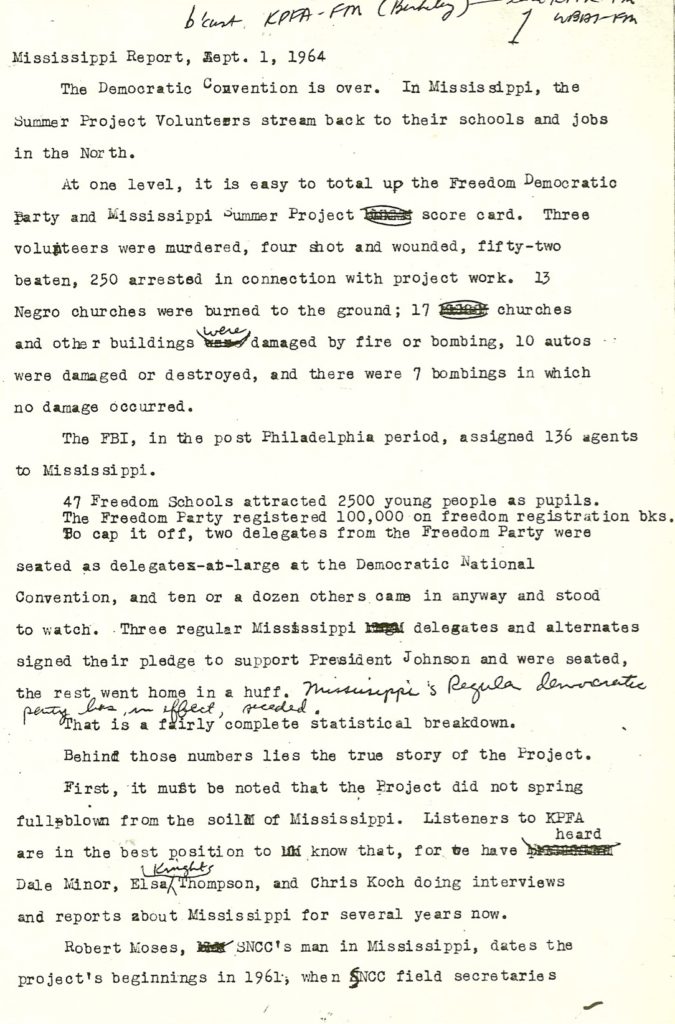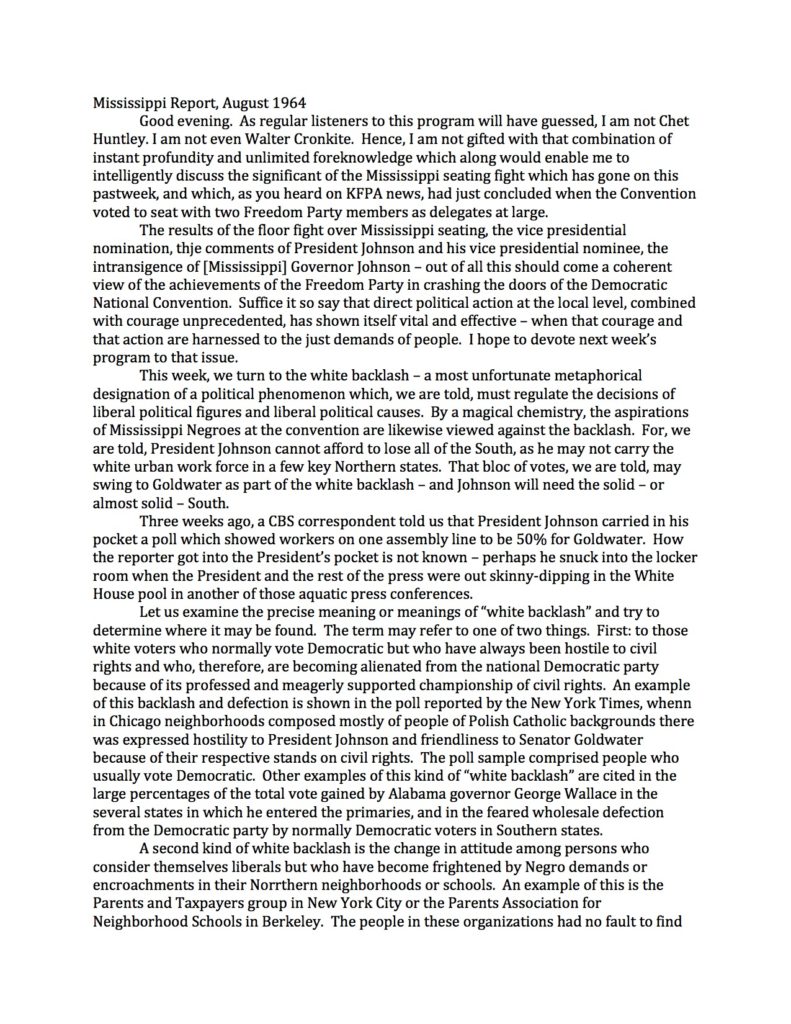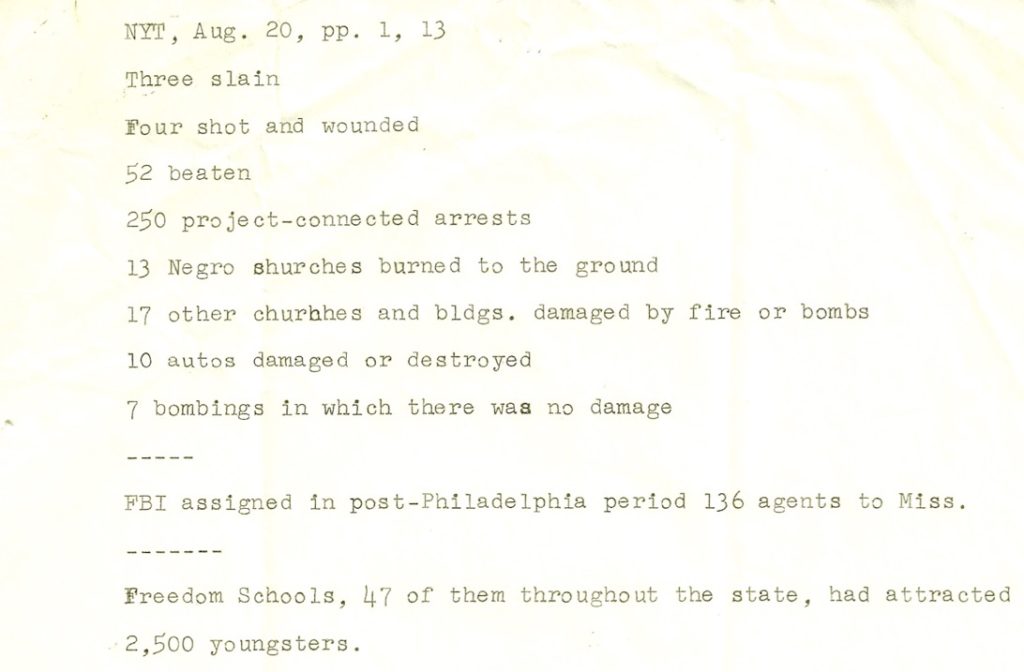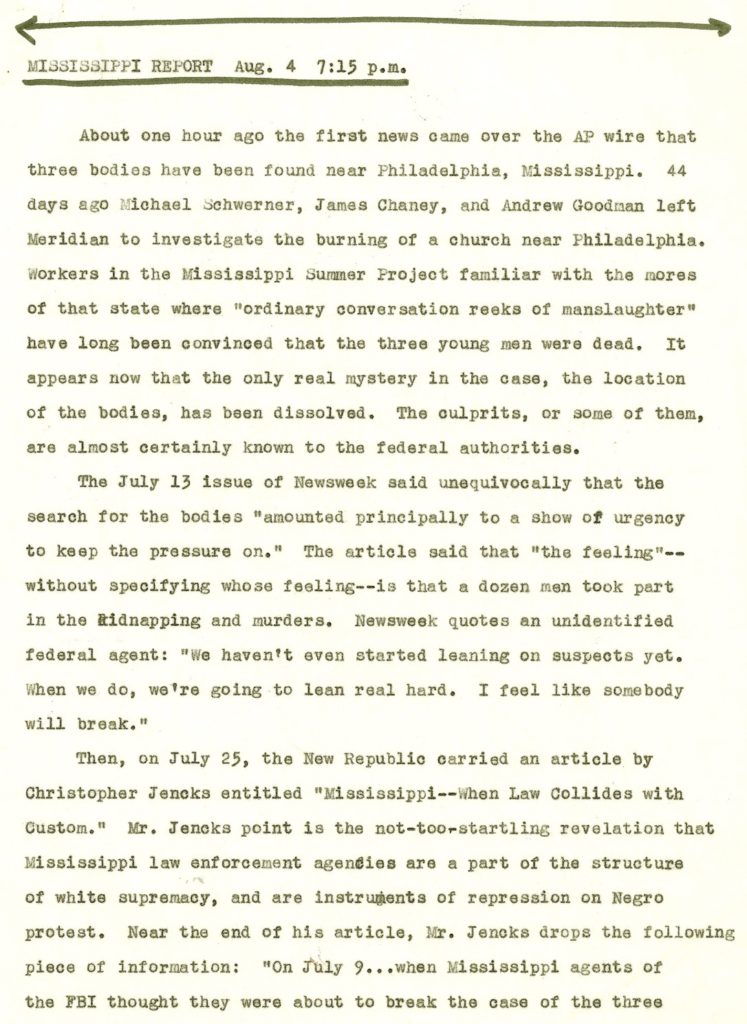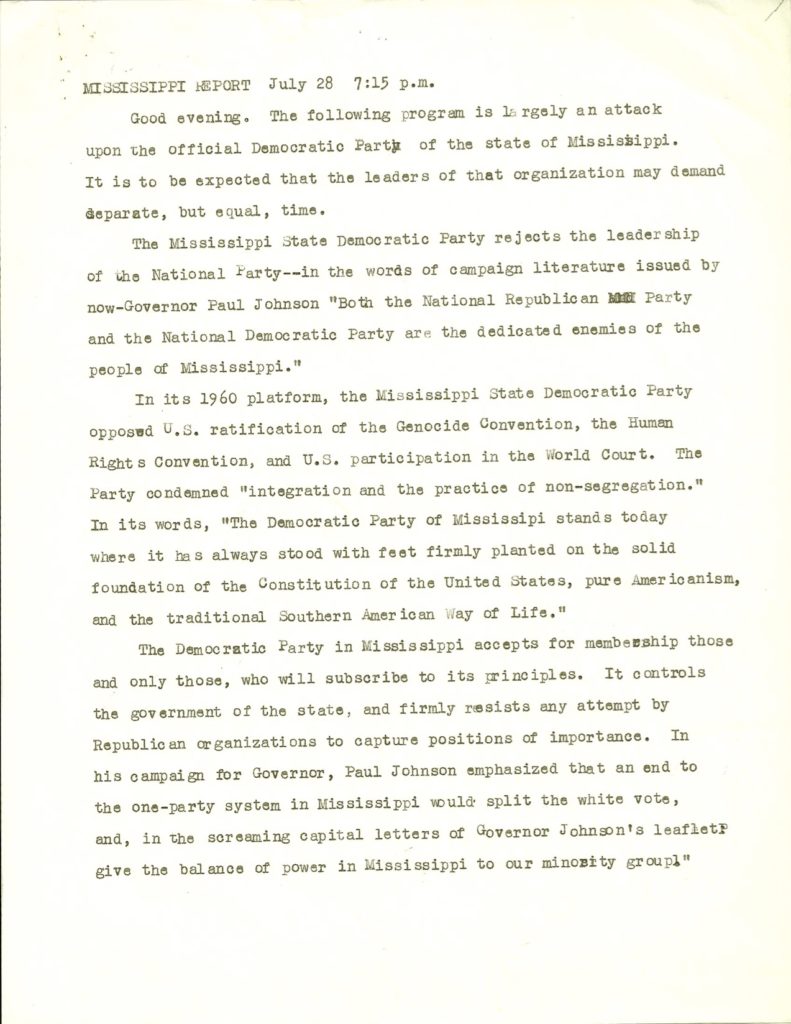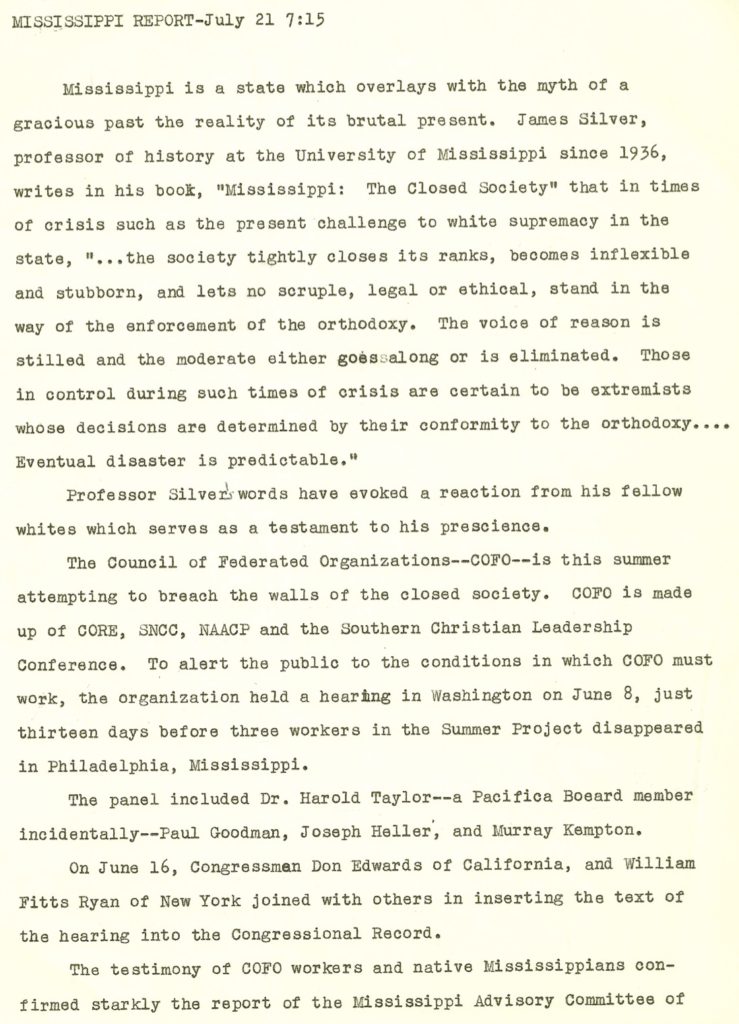Racial Justice
Both as a journalist and a lawyer, Michael Tigar has long advocated for racial justice. Before starting law school, he reported on racial injustice and the political landscape as a radio journalist for KPFA-FM/Pacifica Radio in Berkeley and KFPK-FM in Los Angeles. In the summer of 1964, he did a weekly broadcast entitled “Mississippi Report,” for KPFA, covering the civil rights movement and Freedom Summer. In addition to reporting on murders and lynchings in the United States South, these broadcasts discussed the use of executive authority in integration and various developments at parties’ national conventions (see also “Two Trials in and about Chattanooga – Lynching and Federal Judicial Power”). Being attuned to the underlying dynamics of privilege and power throughout the twentieth century allowed him to confront racial injustice and the racial inequality inherent in the criminal justice system. Tigar witnessed the rise of mass incarceration, and as early as the 1990s, lamented the backlash to affirmative action, not shying away from its effect on the makeup of the legal profession, and in turn, on society.
This section includes examples of scholarship and publications reflecting Tigar’s struggle for racial justice throughout his career. It includes radio scripts from and a retrospective article on this period of his life. As one article alludes to, Tigar participated in the defense of Angela Davis, a colleague of his at UCLA.
His views on racial justice also relate to his perspective on failings of the legal system’s procedures. (See more in Procedure). One essay criticizes the incarceration rate and underfunded counsel. Parallel to his advocacy for racial justice is his advocacy related to the Vietnam War, where several of his cases had racial implications (e.g. Fernando Chavez). One interview demonstrates the inextricable link between Tigar’s understanding of racial injustice and his involvement in broader social and legal reform movements and his belief in the activist role of a lawyer.

